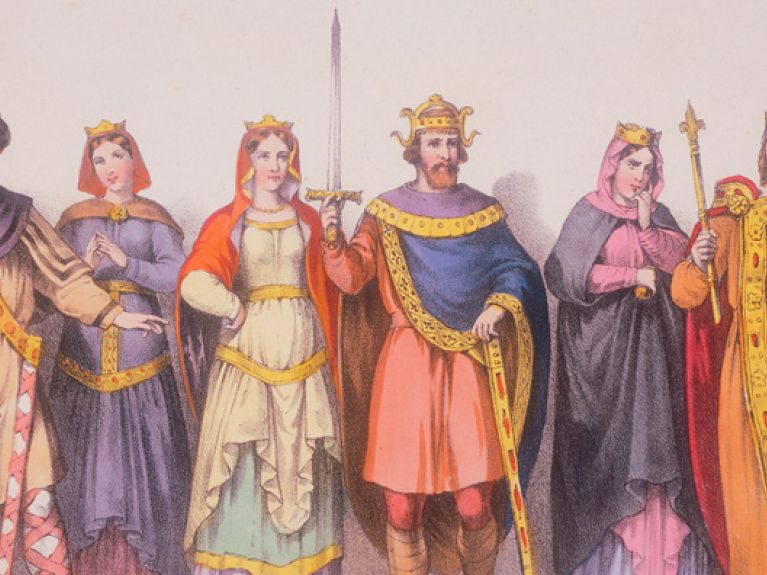Memorial year for Charlemagne
2014 is the memorial year for Charlemagne. The “Carolingian Renaissance” laid the foundations for the culture and geography of Europe today.

Christmas in the year 800 really went down in the annals of history. More than 1,200 years ago Pope Leo III crowned Charlemagne, then King of the Franks, a West Germanic people, Imperator Romanorum, the Roman Emperor. Charles thus placed his empire firmly in the lineage of the ancient Roman Empire. From today’s viewpoint, Charles was a true European, the father of the continent. Presumably born in 748, Charles learned his skills as a general during his days as King of the Franks and thus field marshal over its armies. Back then, the Franks’ empire covered many parts of today’s Europe.
Two nations, France and Germany, associate their birth with this great man, and he was quite literally so, between 1.93 and 2.02 meters tall. Geographically, his empire was likewise of quite a legendary size. It stretched from the Pyrenees to today’s Poland, and in the south it included large parts of the Balkans and Italy. And it united almost all the Christian peoples in the West European part of the Continent. Cultural speaking, the Continent was desolate before Charlemagne’s rule. Waves of migration and the demise of the West Roman Empire had led to cultural decline. Neither the Roman way of life nor literature nor the arts had been nurtured.
All that changed with Charlemagne, who initiated nothing less than an educational reform that has since the 19th century been termed the “Carolingian Renaissance”. Under his august eye, the culture and education of the Ancient Greeks and Romans was rediscovered and revived. The “Carolingian minuscule” a new and especially clear font on which today’s Latin script rests, was created in his university. It strongly facilitated the copying of scrolls, and thus the dissemination of ancient texts. Before he ascended the throne, Charlemagne had already assembled numerous scholars at his court and had opened monastic and cathedral colleges. Charlemagne’s commitment to education, literature and art laid the very foundations of European culture. Moreover, he introduced an effective administration for his vast empire, with uniform laws and a single currency.
Charles died on 28 January 814 in Aachen. He had spent the last 20 years of his life a resident of that town and his son Ludwig was crowned the new ruler of an empire that stretched from the North Sea to Abruzzo, from the Elbe to the Ebro, from the Balaton to Brittany.
1200th anniversary of the death of Charlemagne on 28 January 2014
© www.deutschland.de
